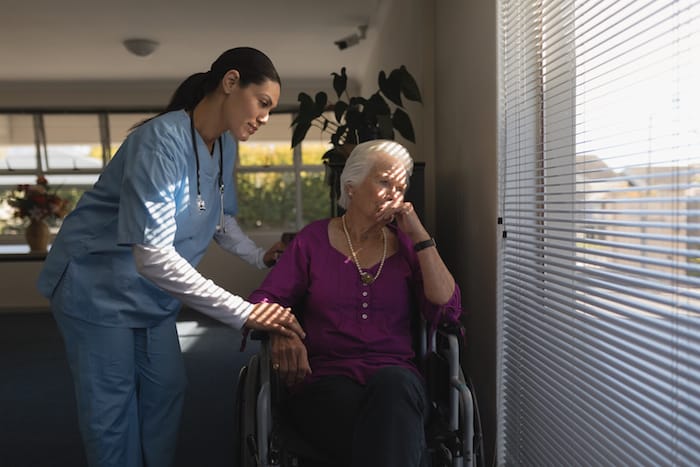Many communities’ traditions demand that the younger generation should take care of the elderly. However, in today’s society, the families are shrinking and also live farther apart. As such, it can be quite difficult to carry out daily responsibilities and also give maximum attention to the elderly. That explains why nursing homes have become very popular in recent years.
Inasmuch as one would like to take care of their loved ones at home, they might lack the skills and resources to do so efficiently. As such, as they seek the services of a nursing home, they’re hopeful that their loved ones will receive the best care possible. However, sometimes these people may become direct or indirect victims of some form of abuse. What should you do when you suspect such abuse? This article aims to discuss this subject and offer you the best possible answers as below:
- Ask Around And Take Note
There are various types of nursing home abuse and several signs that point to the same. For instance, unexplained bruises, sudden weight loss, unresponsiveness, or change in behavior shouldn’t be ignored. If you see such signs, you need to ask the victim how they got these. Of course, it’ll be quite difficult to get conclusive answers from them if they have a mental condition. Alternatively, you can try to gather hints from other residents, especially their roommate if they have one.
The law demands that the management should not only take care of the elderly, but also address all types of nursing home abuse. Therefore, after gathering enough information and you suspect that your relative was abused, you can go ahead and question the nursing staff. Remember, what you perceive as mistreatment may not be, which makes it even more important to get the staff’s side of the story. How they react to your questions will say a lot about them. The guilty parties will always be reluctant to answer you and are unwilling to explain anything satisfactorily.
- Keep Your Calm
Once you suspect a nursing home abuse, you can easily lose your temper. However, doing so will only make things worse, and you might not get the much-needed justice. The best way of handling the situation is to keep calm and call for a meeting with the facility’s administration. As earlier mentioned, you can confront the staff members, but that might not guarantee you the desired results. Having a sober discussion with the administration, on the other hand, is likely to bear fruit.
Remember, inasmuch as this might be a legal process, it’s still imperative that you consider everyone innocent until proven guilty. You wouldn’t want to fall into trouble because of recklessly airing some unproven allegations.

- Contact Your Lawyer
Many of these nursing home-related issues usually end up in court. Whether it gets to that point or not, you’ll still need the guidance of a professional nursing home lawyer. From the outside, things might seem straightforward, but the whole situation can actually escalate to a complicated legal process. To avoid messing up or making avoidable mistakes, it would be prudent to find a good lawyer who can advise you accordingly.
- Collect The Evidence
In a court of law, suspicions hold no water unless they’re backed by enough evidence. With the guidance of your lawyer, you can start looking for various hints that can be used to prove your complaint against the nursing home. First, you can begin by ensuring that your loved one is examined by a professional doctor. By doing a physical exam, the doctor will be able to tell whether the cause of the injury is more of an accident than abuse or the other way round.
Another form of evidence that might be useful is the security footage. Keep in mind that all private facilities have the right to decline your request in that regard unless it’s a court order. Now, this is when your lawyer’s guidance will come into play.
Final Thoughts
Nursing home abuse is an arising issue that’s become more worrying in recent years. What’s encouraging such acts is the fact that many cases go unreported. If you suspect that your elderly relative is a victim of nursing home abuse, it’s important that you take action sooner rather than later. Whichever option you choose, avoid the wait-and-see mindset as much as possible.
Remember, reporting such an issue to the relevant authorities won’t only be beneficial to your loved one, but also to the rest of the residents. If you believe that you have a case, consult your lawyer before moving forward.
Throughout the year, our writers feature fresh, in-depth, and relevant information for our audience of 40,000+ healthcare leaders and professionals. As a healthcare business publication, we cover and cherish our relationship with the entire health care industry including administrators, nurses, physicians, physical therapists, pharmacists, and more. We cover a broad spectrum from hospitals to medical offices to outpatient services to eye surgery centers to university settings. We focus on rehabilitation, nursing homes, home care, hospice as well as men’s health, women’s heath, and pediatrics.








